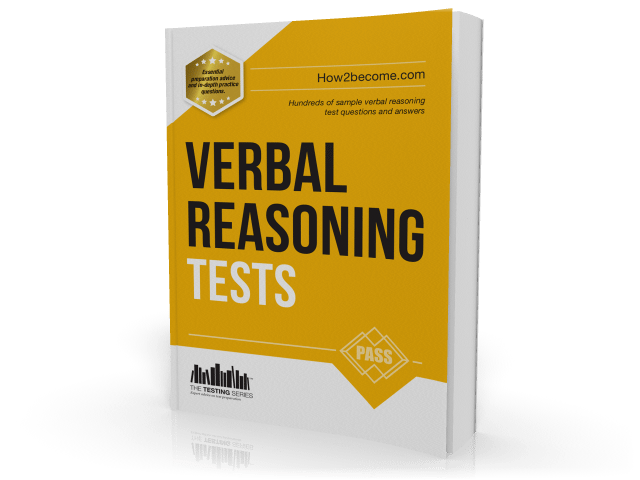One of the hardest parts of the Police Officer Assessment Centre is the Police Verbal Reasoning test. This is an area in which a huge number of candidates fall down. On the face of it, the Verbal Reasoning Test might seem extremely simple. However, there are many pitfalls to avoid, and mistakes that could cost you the job are easily made. In this blog, we’ll look at what the Police Verbal Reasoning test involves, and the best way for you to pass it.
What is the Police Verbal Reasoning Test?
The Police Verbal Reasoning test is a comprehension based exercise, which will test you on your ability to take in and evaluate written information. You will be given a statement/situation, which has multiple conclusions listed at the end of it. You will need to read the passage carefully, and then answer each conclusion with:
-TRUE. You should only answer with TRUE if the conclusion is definitively listed in the passage. Do not make assumptions based on information that you already know outside of the passage, and no do not try to draw conclusions from information that is not definitively given in the passage. For example, if the passage states that ‘Polly wore brown shoes to work every day’ and the conclusion states that ‘Polly liked wearing brown shoes’ this would not be TRUE, as we cannot assume that Polly wearing brown shoes means she liked them.
OR
-FALSE. You should only answer with FALSE if the conclusion is definitively not listed in the passage. Do not assume that information is false just because it isn’t mentioned in the passage, it can only be false is the information is disproved altogether by the passage. For example, if the passage states that ‘Polly wore brown shoes to work on Monday’ and the conclusion states that ‘Polly liked wearing her blue shoes to work on Mondays’ this would not be FALSE, as we cannot assume that Polly didn’t like wearing blue shoes.
OR
-CANNOT SAY. You should only answer with CANNOT SAY if the conclusion is not listed in the passage. If there is no way to definitively answer with TRUE or FALSE, then you should answer with CANNOT SAY. For example, if the passage states that ‘Polly wore brown shoes because she liked the colour’ and the conclusion states that ‘Brown shoes were Polly’s’ favourite colour’ then the answer would be CANNOT SAY, as there is no way for us to ascertain whether or not brown was Polly’s favourite colour.

Sample Verbal Reasoning Question
Now, let’s take a look at a sample verbal reasoning question. At the end of the passage, there are 4 conclusions. For each conclusion, try to decide whether the answer is TRUE, FALSE or CANNOT SAY.
Jose is a year 8 pupil, at Melbrooks Secondary School. Every morning, Jose gets up, puts on his uniform and then gets the bus. Very often, the bus is parked right outside his house. Jose has developed something of a reputation at Melbrooks. Many of his classmates are afraid of him, as they believe him to be a violent bully. Jose spends his lunchtimes hanging out by the bike sheds, with his two friends – John and Richard.
Today, Jose has been summoned to see the head of year. This is in response to an incident on the playground, where other boys accused him of intimidating them. Once the meeting with his head of year is over, Jose travels back home via the bus, and spends the night in his room.
A – Jose was punished by the head of year.
B – Jose travels by bus to school, every single morning.
C – Jose was upset by having to see the head of the year.
D – Jose only has 1 friend, John.
Answers:
A – CANNOT SAY. The reason that this is CANNOT SAY is that the passage does not state whether the head of year punished Jose or not.
B – FALSE. The passage states that ‘Every morning, Jose gets up, puts on his uniform and then gets the bus.’ It does not say that he gets the bus to school.
C – CANNOT SAY. The reason that this is CANNOT SAY is that the passage does not state whether or not Jose was upset by his meeting with the head of year. While it might be implied (by the fact he spends the night in his room) it is not directly stated, and therefore we cannot give the answer as true.
D – FALSE. The passage clearly states that Jose has ‘two friends – John and Richard.’
Extra Help!
Want more help with verbal reasoning? You’re in luck! Our guide on Verbal Reasoning Tests contains HUNDREDS of sample practice questions and answers, to guarantee that you ace your police officer verbal reasoning assessment!

